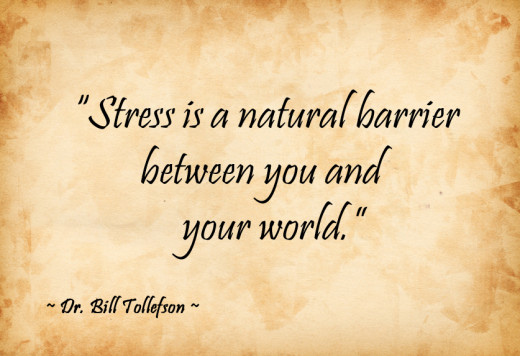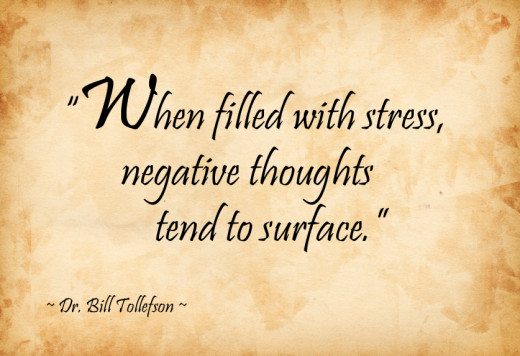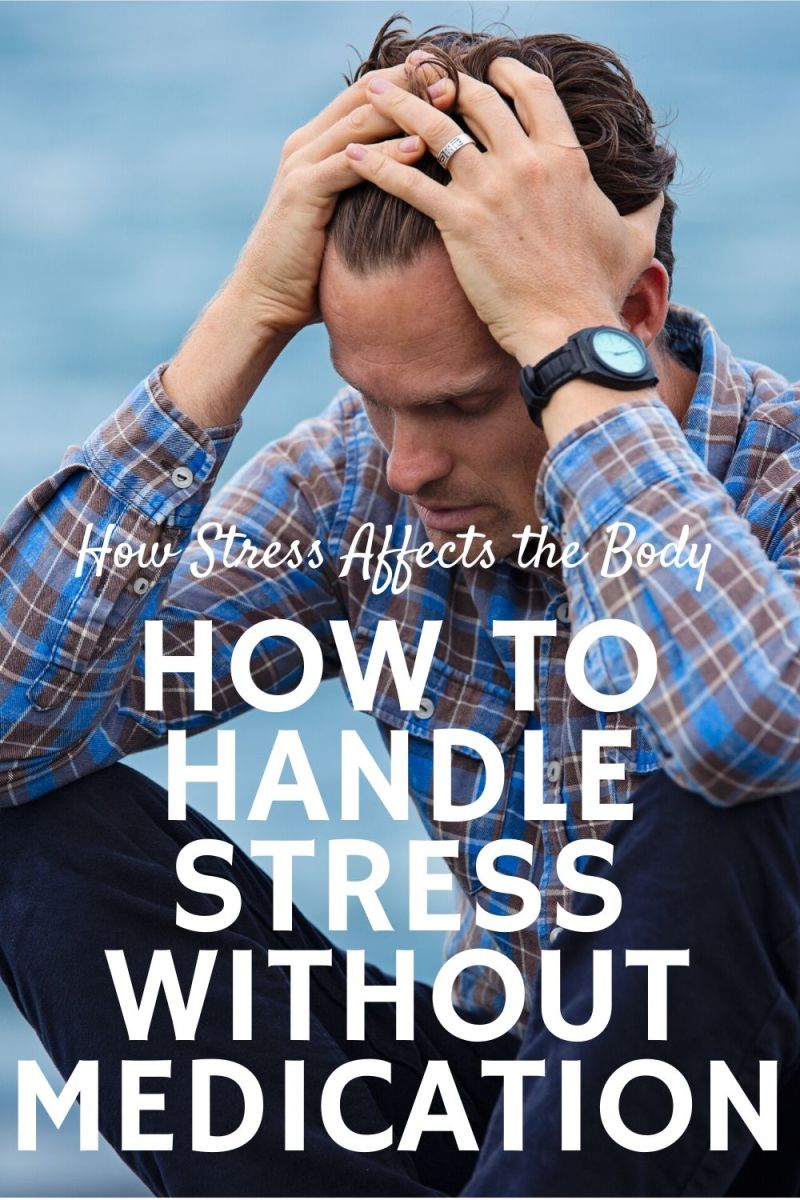7 Tips for Beating Stress
Stress is not your enemy, excessive stress is

Stress Is Not Always Bad
What is stress? Stress is a mentally or emotionally disruptive or upsetting condition occurring in response to adverse external influences and capable of affecting physical health, usually characterized by physical reactions such as increased heart rate, muscular constriction, increase blood pressure, frustration, stress, and depression.
Stress throws the nervous system out of power and balance. Stress is not always bad. In small doses, being under pressure can help you perform and motivate you to do your best. But when you’re continuously running in emergency mode, your mind and body will pay the price. When you sense danger – whether it’s real or imagined – the body's defenses kick into high gear in a rapid, automatic process known as the “fight-or-flight” reaction, or the stress response.
The stress response is the just a normal process in your fast-paced ever demanding world in which you live. Stress is also the body’s way of protecting you. When your body is working correctly, it helps you stay focused, energetic, and alert. In emergency situations, stress can save your life – giving you extra strength to defend yourself or prompting you to slam on the brakes to avoid an accident.
Stress is not always harmful to you, and there are many advantages to stress. The stress response helps you rise to meet challenges and increases your performance. Stress is what keeps you on your toes during work tasks; it increases your creativity, sharpens your concentration in completion events and sports, and keeps you focused while studying for finals when you'd instead be doing something else. How you tolerate, stress depends on many factors, including the quality of your relationships, coping skills, outlook on life, life pressures, emotional satisfaction, and past experiences.
At a certain point, stress becomes dysfunctional and stops being helpful. At this point, extreme stressfulness will begin causing significant damage to your health, your mood, your productivity, your relationships, your happiness, and your quality of life.
Excess stress causes anxiety, doubt, fear, and worry.

Harmful Effects of Stress
The human body doesn't distinguish between physical, emotional or psychological threats. When you’re stressed over daily events, family arguments, a crowded highway, or economic pressures your body’s reaction is just as strong as if you were facing a life-or-death situation. The more your emergency stress response -“fight or flight”- is “on,” the harder it for the stress system to shut down.
Recurrent stimulation of the body’s stress system can lead to serious health problems. How much stress is “too much” differs from person to person. Sensitivity to stress can vary also. Some people thrive on excitement and high levels of stress while others crumble from the slightest bit of stress, frustration or life barriers. Chronic exposure to stress can throw every physical system out of balance and cause a constant feeling of fear. As a result, your blood pressure can rise; you will get an increased fear response, increased respiration, increase in cortisol hormones, and an increase the risk of heart attack and stroke. Chronic stress can also decrease the effectiveness of your immune system, contribute to infertility and speed up the aging process. Repetitive states of chronic stress can even rewire the brain, leaving you more vulnerable to anxiety, panic, and depression. Other health problems that are caused or exacerbated by stress like autoimmune diseases, emotional or physical pain, digestive issues, sleep problems, obesity, PTSD symptoms and many skin conditions.
7 Tips to Reduce Stress
1. Physical Exercise – Physical exercise of any kind will help to reduce your level of physical stress. Develop a routine of physical activity whether it is as simple as walking and enjoying nature as you walk or working out at a gym, bike riding, playing catch with your kids, or yoga 3 to 4 times a week.
2. Emotions – Accept your feelings as yours. Gain skills to soothe and calm your emotions when you are feeling sad, lonely, angry or afraid. Handling your emotions will increase your confidence and emotional strength. Learning to balance your feelings helps you to bounce back from adversity and reduces your vulnerability to stress. Your emotions manifest themselves through feelings and feelings are like waves. Feelings come in and go away. Feelings do not last forever whether they are positive or negative.
3. The Sense of Control – If you have a positive mindset toward your ability to influence events and persevere through life’s challenges, you will have more control of your stress level. The more you feel that you are not performing adequately in your life the more vulnerable you are to accumulating stress.
4. Understanding and Preparation - The more you know about your stress, including the effects, how long it will last, and what to expect, the higher your ability to cope.
5. Utilizing Support Network – The more you are isolated or withdrawn from others, the higher your degree of vulnerability to stress. A strong network of supportive friends and family members is an enormous buffer against life’s stress.
6. Practice Relaxation – Learn a method of relaxation. Spend 10 minutes a day with yourself in “me time.” Sit with yourself without distraction.
7. Humor – Increasing your ability to laugh and not take everything in life personally, will decrease the amount of stress you store.
Follow these seven tips, and you will be able to decrease your vulnerability to stress, increase energy, strength and increase your performance to enhance your life.
© 2011 Bill Tollefson







